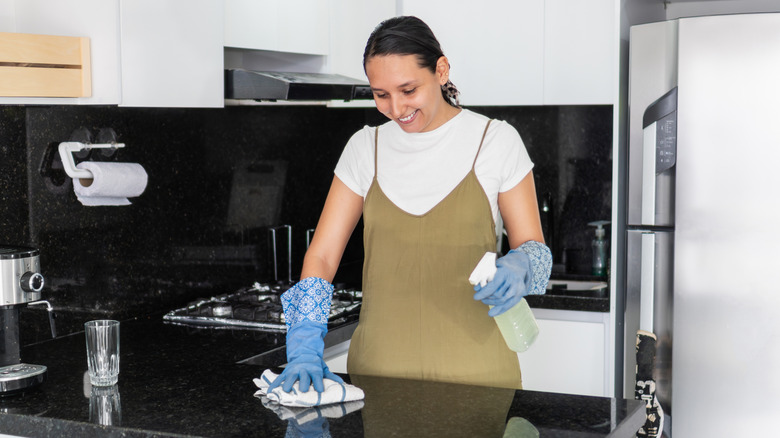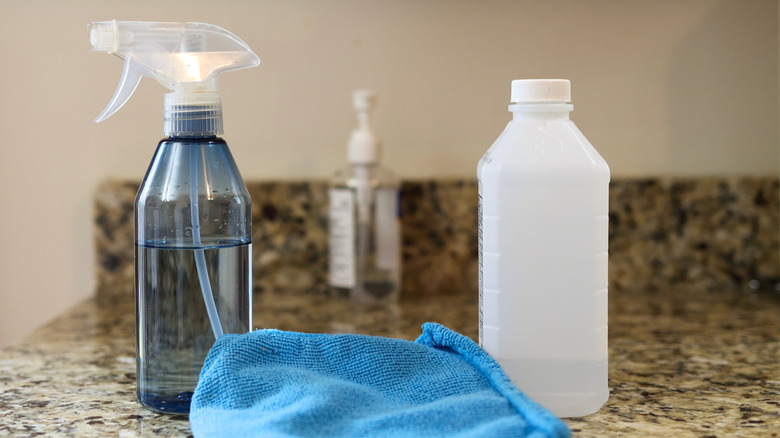The Medicine Cabinet Staple That'll Make Your Granite Countertops Shine Like New
Countertops are a centerpiece of any kitchen, so keeping them clean is essential –- not just for appearances but also to maintain a fresh, germ-free environment. If you have granite countertops, it's especially important to clean them properly to avoid damaging the stone. Many store-bought cleaners use ammonia, bleach, or other chemicals that are too harsh. Natural cleaning solutions you can DIY can be a great alternative. However, acidic ingredients such as vinegar or lemon can also be harmful, leaving the stone looking dull or stained. Fortunately, there's a better option you can use to make your countertops shine like new — and it's probably already in your medicine cabinet.
Cleaning your granite with isopropyl alcohol (commonly referred to as rubbing alcohol) is one of several clever ways you should be using this staple around the house. To create a solution, start with a 1-liter spray bottle. Mix 4 tablespoons of alcohol — with a concentration of 70% or less — with 4 drops of dish soap. Fill the bottle with lukewarm water and mix gently to combine the ingredients.
Tips for using isopropyl alcohol to clean granite countertops
If you need a more potent disinfectant, opt for 70% rubbing alcohol sprayed directly onto the granite without diluting it. Let it sit for three to five minutes, then wipe the countertops down to remove any residue. To give it a fresh scent, you can add a few drops of essential oil to the mixture. One thing you should never do if you have granite countertops is scrub them with something abrasive, so be sure to use a cloth, such as microfiber, or a soft sponge.
Rubbing alcohol is safe for regular use, so it should be applied daily to keep your countertops clean, looking their best, and free from dirt or food-borne bacteria. You can also help keep your granite in top shape by immediately cleaning up any spills — especially acidic ones. Also, make sure your countertops are properly sealed, which will help prevent staining and etching. Sealing should typically be done every one to three years.

